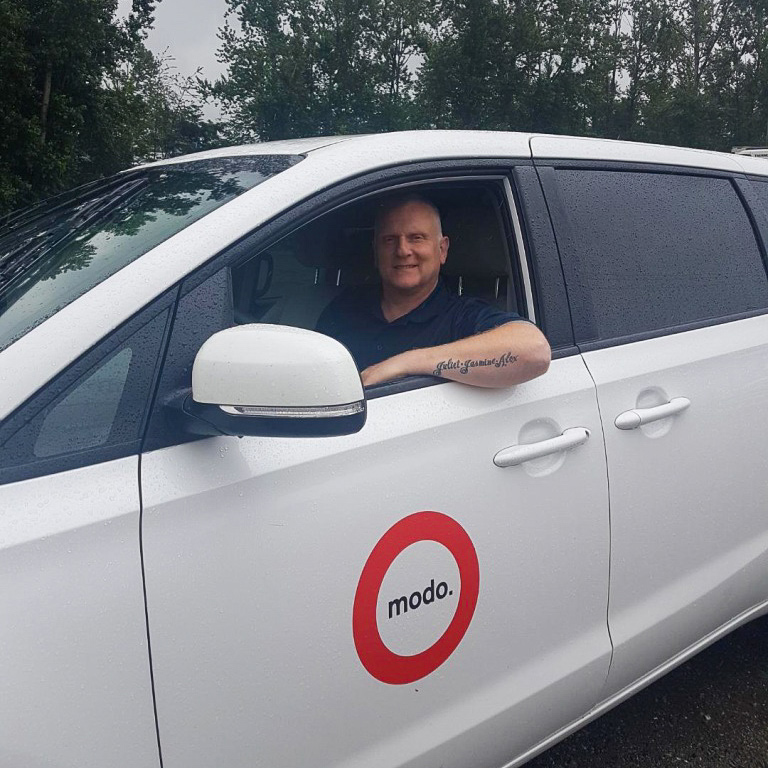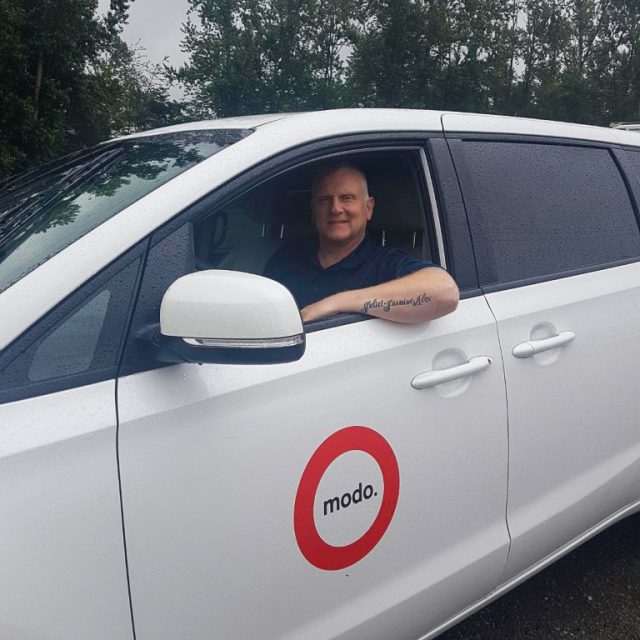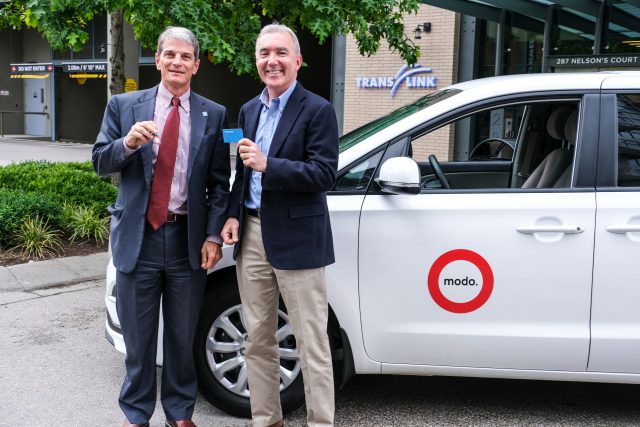TransLink Tomorrow’s vanpool a boon for UBC commuter Clay
TransLink Tomorrow’s vanpool a boon for UBC commuter Clay


For the last five years, Clay McMullen has been making the stressful, bumper-to-bumper commute between his home in Abbotsford and the University of British Columbia’s Point Grey campus where he works.
The 200 kilometre round trip requires Clay to leave for work at 4:40 a.m. and then leave UBC for home at 3:30 p.m, five days a week.
“Money isn’t the big thing — the big thing is the stress of being behind the wheel,” says Clay.
But since February, the daily three-hour combined commute has gotten a lot easier.
“Two or three, or six of us can share this burden in a vanpool.”
Clay now commutes with six of his coworkers, who live in the Fraser Valley and South of Fraser, as part of a vanpool (a carpool but with vans!), organized by TransLink in partnership with Modo.
He says this small change has been a major boon to his lifestyle.
“Vanpool is good for the environment, good for my stress levels, and good for my wallet.”
He’s right.
No parking costs, oil changes, insurance or gas fill-ups needed. It’s all covered.
We estimate one full vanpool in our pilot takes an average six single-occupancy vehicle off the roads and close to 27,185 kg/yr reduction in greenhouse gas emissions. The average customer saves approximately $850 each month and on top of that, they get a Monthly Pass for transit. Because of that, Clay says he’s now using transit on weekends.
Their vanpool starts in Abbotsford with the first two passengers picking up the Modo van. They then drive over to Aldergrove to pickup one more passenger and two more in South Surrey before making the trek to UBC with six passengers onboard.
They rotate drivers everyday with some preferring to drive in the morning and others in the afternoon. Those who aren’t driving might take a morning or afternoon nap, while others might pop in the earbuds and listen to music on the way in.
One thing’s certain though — the car’s stereo will always be on adult hits radio station, JACK 96.9.
“We picked the station that most people can endure,” Clay explains, adding that they always keep the conversations light. That means kids, sports, and what’s going on UBC and the department they work in. Religious and political topics are off limits.
Clay and his vanpool mates are part of the nearly 48 people — or 10 vanpools — participating in TransLink’s pilot program, provided in partnership with Modo co-operative, for UBC employees. It began in February 2019 and will run for 12 months.
We’re offering the pilot as part of the TransLink Tomorrow program, our commitment to continuously explore, test, and implement innovative ways to improve mobility in Metro Vancouver.
Our population is growing with a million more people set to call our region home in the coming decades. More options and creative solutions will be needed to get us to where we live, work and play.
The future seemingly’s also going to be very different. Climate change, new technologies — we’re adopting it faster than ever before, and a shifting global economy’s creating new opportunities and challenges that we need to consider.
Many believe the future of transportation will be automated, connected, electrified and shared. Robots could be in the driver’s seat, vehicles of all types will soon be able to communicate with each other, powered by renewable energy and everything will be shared rather than owned.
That’s why TransLink’s leading the development of Transport 2050, a new long-term transportation strategy for our region.
So, will it be more vanpools to help longer-distance commuters like Clay, who travel at times and from areas where frequent and convenient transit options are not easily accessible? Or something entirely different? Electrified vanpools with robot drivers?
Clay himself has an idea or two: transit out to the Fraser Valley, which is currently outside of TransLink’s service area, and vanpool that uses transit buses.
As for a robot driver?
“I’m not sure I’m ready for that.”
What do you you value about where you live and what are your ideas for the future of our region? We want to hear from you! Participate in Transport 2050.






